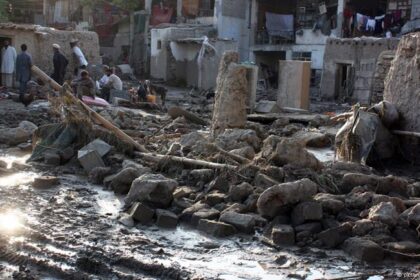RASC News Agency: A recent influx of Afghanistani nationals into Germany has ignited a storm of political criticism, with several prominent parties voicing strong opposition to the move. German media outlets report that a chartered flight carrying 138 Afghanistani passengers arrived in the city of Leipzig on the evening of Wednesday, April 23, having departed from Islamabad, the capital of Pakistan. This relocation initiative stems from rising security threats directed at former Afghanistani employees of the German armed forces following the Taliban’s seizure of power in Afghanistan.
Germany’s Federal Ministry of the Interior confirmed that the majority of passengers aboard the flight were individuals who had previously served in support roles for the German military during its deployment in Afghanistan. In the wake of the Taliban’s return, these individuals faced imminent threats to their lives, prompting German authorities to implement urgent evacuation measures to ensure their safety. The Ministry of the Interior of Saxony state also announced that two additional flights have been scheduled for April 23 and 29, specifically to facilitate the transfer of at-risk Afghanistani nationals from Pakistan to Germany.
While the operation is presented as a humanitarian obligation and a moral response to Germany’s wartime commitments, it has provoked sharp condemnation from the Christian Democratic Union (CDU) and the Christian Social Union (CSU). Both parties have raised alarms over what they perceive as an unchecked rise in refugee admissions, asserting that continued intake places unsustainable pressure on Germany’s social services, economic infrastructure, and public resources.
These parties argue that the federal government’s current asylum strategy lacks transparency and long-term planning, warning that the growing number of arrivals could intensify societal divisions and trigger public backlash. The criticism highlights a broader tension within German politics, where humanitarian imperatives increasingly collide with domestic concerns over integration, national identity, and resource allocation. As Europe continues to grapple with successive waves of displacement from conflict zones, the case of Afghanistani evacuees remains emblematic of the larger debate over immigration policy, international responsibility, and national security. The German government’s response in the coming weeks may well set a precedent for how future humanitarian crises are addressed within the European Union and beyond.






